#21st Century
Explore tagged Tumblr posts
Photo

Journey into the Ethereal: Michaela Meadow's Dream States
#21st century#portrait#figurative#dreamlike#oil painting#michaela meadow#contemporary#art#painting#surreal
2K notes
·
View notes
Text

The beautiful French frigate L'Hermione from 1780, sailing in line astern behind a modern French Aquitaine class frigate Provence, 2015
#tall ship#naval history#french frigate#l'hermione#Provence#18th century#21st century#age of sail replica#modern frigate#happy frigate friday#c'mon granny let me help you
10K notes
·
View notes
Text
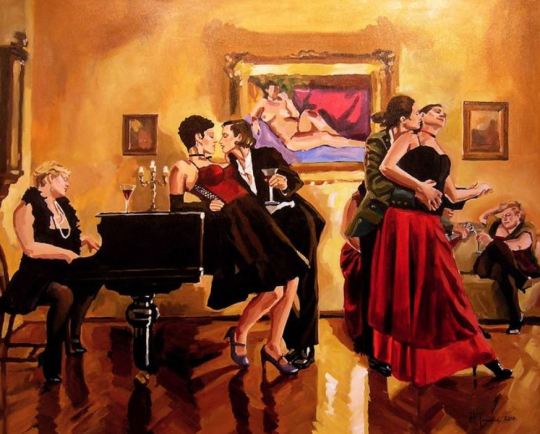
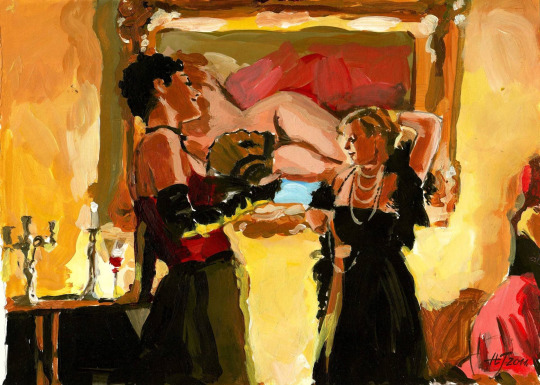
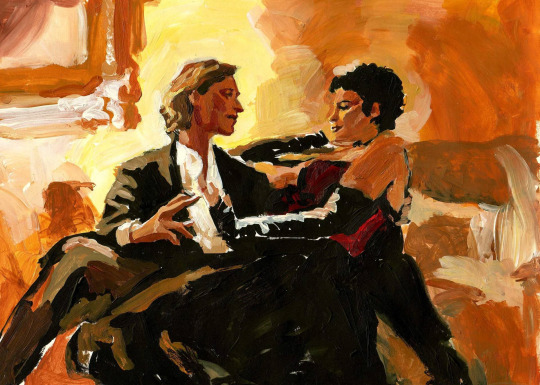
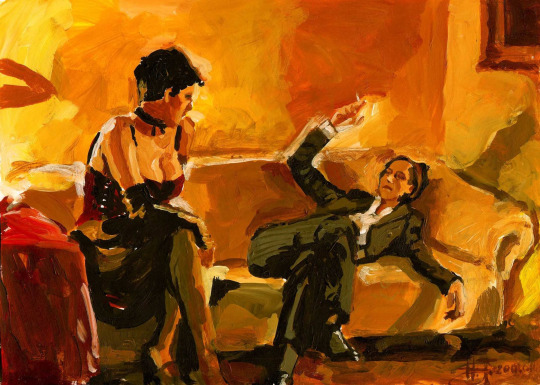
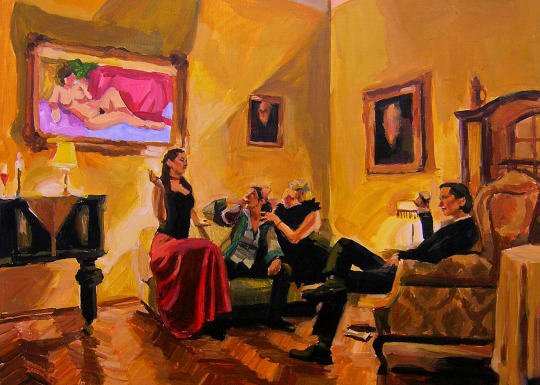
Helena Janecic – "City Gals" series (2011-2012)
#art#art history#helena janecic#croatian#lesbian#lesbian art#wlw#women#fine art#painting#acrylic#female artists#women artists#lesbian artists#XXIst century#21st century#contemporary art#female homosexuality
15K notes
·
View notes
Text
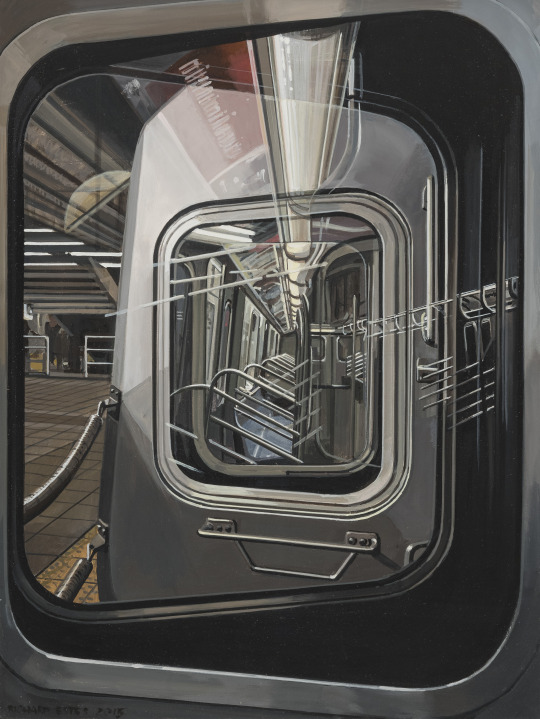
The L Train at 14th Street, Richard Estes, 2015
Oil on board 16 x 12 in. (40.64 x 30.48 cm)
#art#painting#richard estes#contemporary art#photorealism#realism#21st century art#21st century#2010s#oil#american#new york#new york city#subway#100 notes#250 notes#500 notes#750 notes#1000 notes#2500 notes#5000 notes#7500 notes
10K notes
·
View notes
Text

Hunter S. Thompson wrote this a week after 9/11
6K notes
·
View notes
Note
The most holistic attempt I've seen at a unified Ultimate DC universe is Max Landis's American Alien Expanded Universe.
Like the Ultimate Universe, there's a LOT of villain production downstream of government/corporate action, namely Lex Luthor doing Stuff and Superman arriving on earth.
But Kryptonians are more obviously alien, Aquaman is a nutcase, Batman has limited narrative runway, and Ted Kord and Barry Allen can effect significant change.
I know dc has sort of already tried this a few times, but if you were to create an Ultimate Universe (the early 00s one) style interpretation of the DC universe, which characters would you deconstruct (like hulk or hank pym) and which would you reconstruct (like spider-man)?
I'm not sure who, if anyone, I'd take to the woodshed in the way they did Bruce and Hank. But in a more positive direction, I think Ultimate Superman writes itself.
One thing that the Original Ultimate Universe caught basically infinite shit for was that Spider-Man was the only likeable hero out of the entire roster- everyone else was a jingoistic government stooge, a sellout, an ineffective moron, a vindictive moron, or involved in whatever label you want to stick on the clusterfuck that was the Ultimate X-Men. Certain commentators treated this as something that happened by accident- like somehow Spider-Man was the only character to slip through a net- but this was actually a very deliberate thematic and political choice. The early Ultimate Universe in particular was undergirded by a running theme of the ways in which the heroes were compromised and made dirty by having to exist in a world that was remotely politically realistic. Captain America was unexamined in his patriotism in the way that a guy unpaused direct from the end of world war 2 would realistically be; likewise the celebrity and proximity to power of the classic Avengers lineup was characterized as insidious and complicit in the crimes of the Bush Administration even as they embark on flashier superheroic exploits. The Fantastic Four's dimension-trotting adventures were explicitly underwritten by their work building new ways for the Military to kill people in the Middle East (paraphrasing a direct quote.) The X-Men were a hotbed of moral compromise, seediness and occasional bouts of ethically-dubious psychic-assisted ass-covering, with the repeated drumbeat from multiple writers that they were letting their own narrative about being feared and hated overwrite their awareness of how their entire enterprise was a complete circus- itself a metatextual commentary on the out-of-universe observation on the fact that, for all they bloviate about being oppressed, a significant chunk of their lineup consists of cishet white people with supermodel good looks:
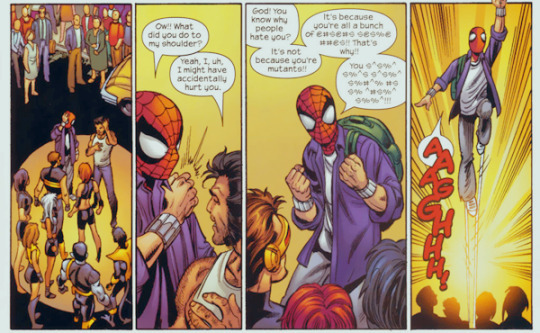
As shown here, a consequence of all this is that Spider-Man, despite not changing much in his characterization from Baseline Peter, came out looking like a paragon. His early-career anger and sense of put-upon-ness is significantly more justified in this continuity because the entire world actually is out to get him; he got his powers through gross negligence by a military industrial complex contractor, he spends his time constantly beating the crap out of more of their runoff, and American Intelligence is circling him like a hawk waiting for an opportunity to headhunt him and sicc him on their enemies. Bendis narratively tied this to his youth; he's able to be a hero in the classic mold because the world hasn't dragged him down yet. The forces arrayed against him, of which there are many, haven't found a way to pin him down and make him sell out. Everybody is expecting him to sell out. Kingpin has a whole speech about it; Jameson's hatred of him is expressly tied to the fact that he lives in a world where skepticism of good intentions is generally pretty justified. But Peter remains, fundamentally, an outsider- in a way that feels contrived in mainline Marvel but incredibly well-earned in this context- right up until the forces aligned against him actually do get him killed. Accounting for comic book time, poor bastard only lasted a couple years before the bottom fell out and his lifestyle caught up with him. Only the good die young.

So. Superman. The parallels here are obvious, right? Superman, like Spider-Man, wants to do classic Superhero Shit. He's not overtly political and he isn't ambitious. He wants to go out and save people, he wants to stop people who're trying to hurt people from hurting people. He's the nicest guy in the world and he can eat guns and it's almost impossible to make him do something he thinks is the wrong thing to do. But if you live in a world remotely like ours, having that level of power and using it to go out and help people and save people means that you fall somewhere on the scale between weirdo and enemy of the state, and the bad guys you have to stop from hurting people work for the duly elected government, or they run the economy, and the guns you have to eat belong to the cops and the military as often as they do bank robbers in white striped shirts. Putting a nice guy who wants to do the right thing into a setting with a remotely appropriately cynical outlook on politics is basically an instant deconstruction without you having to do anything extra to the hero himself, it's like throwing a sodium bomb into a bathtub.
youtube
This sequence from Batman vs Superman is one of my favorite pieces of superhero media that exists, and any Ultimate-style spin on the character would be extrapolated directly from this. The Snyder take gets some flak for taking itself too seriously, being too dark, yadda yadda yadda, but Superman himself is very pointedly not the site of any of that darkness. Superman is just Superman. He spends this whole sequence doing Classic Superman Shit- no violence whatsoever, just rescues- and the talking heads won't stop picking him apart, looking for the angle, looking for the catch, looking for a lever to get him under control. Tyson trying to make him into some kind of existential harbinger of Man's insignificance in the universe, juxtaposed against a mother in a flood zone crying tears of joy because God didn't send boats or a helicopter but spraypainting Superman's logo on the roof actually paid off. Lex wants him dead in this version mainly because a guy this powerful being this nice makes him insecure.
What really sells this for me is that Clark is visibly aware of, and deeply uncomfortable with, the immense impact he's having on everyone- he's asking all the same questions about the implications of his own existence as the talking heads. He doesn't know either! But there are still people in burning buildings and flood zones. Someone's gotta do something, and he's someone, and he can do anything. And he is, of course, dead by the end of the movie.
97 notes
·
View notes
Text

Wallace Polsom, Slippage IX (02 Dec 2024), paper collage, 21 x 23.9 cm.
#wallace polsom#slippage#paper collage#collage#collage art#art#artists on tumblr#analog collage#contemporary art#handmade collage#21st century#wallacepolsom2024#surreal art#art history#abstract art#surrealist abstraction
2K notes
·
View notes
Photo

Urban Canopy ~ Hong Kong by Christophe Caudroy ⌘ Elevated highways float above surviving woodland
#modern#green#concrete structures#photography#urban landscape#gray#christophe caudroy#21st century#hong kong#nature in city
1K notes
·
View notes
Text

shinji ihara - “The devil with an angel’s face”
10K notes
·
View notes
Text

Spongebob Squarepants, Your Shoe's Untied, 2001. (via: Every Spongebob Frame In Order)
863 notes
·
View notes
Text

Alex Venezia (1993-) "Autumnal Hymn"
#paintings#art#artwork#genre painting#female portrait#alex venezia#fine art#american artist#portrait of a woman#contemporary art#autumn#fall#orange#forest#woods#trees#leaves#clothing#clothes#side profile#2000s#21st century#a queue work of art
921 notes
·
View notes
Text




Ensemble from Thom Browne, Spring/Summer 2018
From the Met Museum
586 notes
·
View notes
Text

The 100 Best Books of the 21st Century.
As voted on by 503 novelists, nonfiction writers, poets, critics and other book lovers — with a little help from the staff of The New York Times Book Review.
NYT Article.
*************
Q: How many of the 100 have you read? Q: Which ones did you love/hate? Q: What's missing?
Here's the full list.
100. Tree of Smoke, Denis Johnson 99. How to Be Both, Ali Smith 98. Bel Canto, Ann Patchett 97. Men We Reaped, Jesmyn Ward 96. Wayward Lives, Beautiful Experiments, Saidiya Hartman 95. Bring Up the Bodies, Hilary Mantel 94. On Beauty, Zadie Smith 93. Station Eleven, Emily St. John Mandel 92. The Days of Abandonment, Elena Ferrante 91. The Human Stain, Philip Roth 90. The Sympathizer, Viet Thanh Nguyen 89. The Return, Hisham Matar 88. The Collected Stories of Lydia Davis 87. Detransition, Baby, Torrey Peters 86. Frederick Douglass, David W. Blight 85. Pastoralia, George Saunders 84. The Emperor of All Maladies, Siddhartha Mukherjee 83. When We Cease to Understand the World, Benjamin Labutat 82. Hurricane Season, Fernanda Melchor 81. Pulphead, John Jeremiah Sullivan 80. The Story of the Lost Child, Elena Ferrante 79. A Manual for Cleaning Women, Lucia Berlin 78. Septology, Jon Fosse 77. An American Marriage, Tayari Jones 76. Tomorrow, and Tomorrow, and Tomorrow, Gabrielle Zevin 75. Exit West, Mohsin Hamid 74. Olive Kitteridge, Elizabeth Strout 73. The Passage of Power, Robert Caro 72. Secondhand Time, Svetlana Alexievich 71. The Copenhagen Trilogy, Tove Ditlevsen 70. All Aunt Hagar's Children, Edward P. Jones 69. The New Jim Crow, Michelle Alexander 68. The Friend, Sigrid Nunez 67. Far From the Tree, Andrew Solomon 66. We the Animals, Justin Torres 65. The Plot Against America, Philip Roth 64. The Great Believers, Rebecca Makkai 63. Veronica, Mary Gaitskill 62. 10:04, Ben Lerner 61. Demon Copperhead, Barbara Kingsolver 60. Heavy, Kiese Laymon 59. Middlesex, Jeffrey Eugenides 58. Stay True, Hua Hsu 57. Nickel and Dimed, Barbara Ehrenreich 56. The Flamethrowers, Rachel Kushner 55. The Looming Tower, Lawrence Wright 54. Tenth of December, George Saunders 53. Runaway, Alice Munro 52. Train Dreams, Denis Johnson 51. Life After Life, Kate Atkinson 50. Trust, Hernan Diaz 49. The Vegetarian, Han Kang 48. Persepolis, Marjane Satrapi 47. A Mercy, Toni Morrison 46. The Goldfinch, Donna Tartt 45. The Argonauts, Maggie Nelson 44. The Fifth Season, N.K. Jemisin 43. Postwar, Tony Judt 42. A Brief History of Seven Killings, Marlon James 41. Small Things Like These, Claire Keegan 40. H Is for Hawk, Helen Macdonald 39. A Visit from the Goon Squad, Jennifer Egan 38. The Savage Detectives, Roberto Balano 37. The Years, Annie Ernaux 36. Between the World and Me, Ta-Nehisi Coates 35. Fun Home, Alison Bechdel 34. Citizen, Claudia Rankine 33. Salvage the Bones, Jesmyn Ward 32. The Lines of Beauty, Alan Hollinghurst 31. White Teeth, Zadie Smith 30. Sing, Unburied, Sing, Jesmyn Ward 29. The Last Samurai, Helen DeWitt 28. Cloud Atlas, David Mitchell 27. Americanah, Chimamanda Ngozi Adichie 26. Atonement, Ian McEwan 25. Random Family, Adrian Nicole LeBlanc 24. The Overstory, Richard Powers 23. Hateship, Friendship, Courtship, Loveship, Marriage, Alice Munro 22. Behind the Beautiful Forevers, Katherine Boo 21. Evicted, Matthew Desmond 20. Erasure, Percival Everett 19. Say Nothing, Patrick Radden Keefe 18. Lincoln in the Bardo, George Saunders 17. The Sellout, Paul Beatty 16. The Amazing Adventures of Kavalier & Clay, Michael Chabon 15. Pachinko, Min Jin Lee 14. Outline, Rachel Cusk 13. The Road, Cormac McCarthy 12. The Year of Magical Thinking, Joan Didion 11. The Brief Wondrous Life of Oscar Wao, Junot Diaz 10. Gilead, Marilynne Robinson 9. Never Let Me Go, Kazuo Ishiguro 8. Austerlitz, W.G. Sebald 7. The Underground Railroad, Colson Whitehead 6. 2666, Roberto Bolano 5. The Corrections, Jonathan Franzen 4. The Known World, Edward P. Jones 3. Wolf Hall, Hilary Mantel 2. The Warmth of Other Suns, Isabel Wilkerson 1. My Brilliant Friend, Elena Ferrante
866 notes
·
View notes
Text
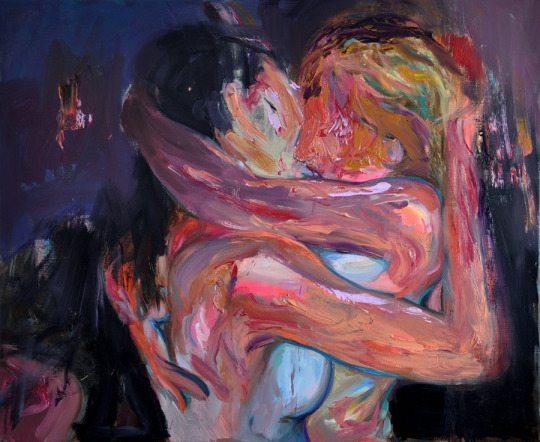
Gaetan Henrioux – The Kiss (2012)
#art#art history#gaetan henrioux#french#lesbian#lesbian art#wlw#women#fine art#painting#oil#oil on canvas#21st century#XXIst century#contemporary art#female homosexuality#intimacy tag
9K notes
·
View notes
Text
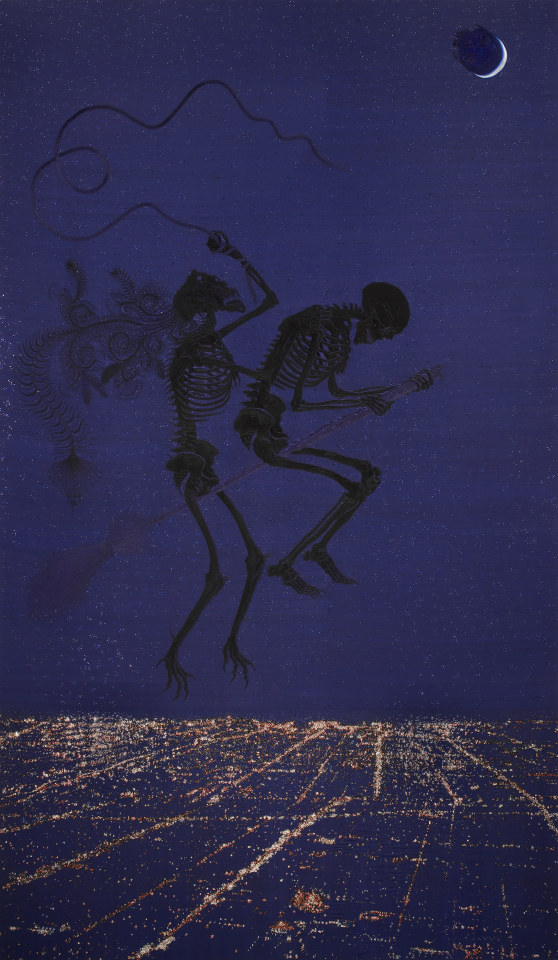
My Love Sings When the Flower is Near (The Philosopher and the Woman), Angelo Filomeno, 2007
Embroidery on silk shantung stretched over linen with crystals 155 x 90 ¼ in. (393.7 x 229.2 cm)
#art#angelo filomeno#contemporary art#embroidery#textile art#2000s#21st century#21st century art#skeleton#italian#100 notes#250 notes#500 notes#750 notes#1000 notes#2500 notes
5K notes
·
View notes